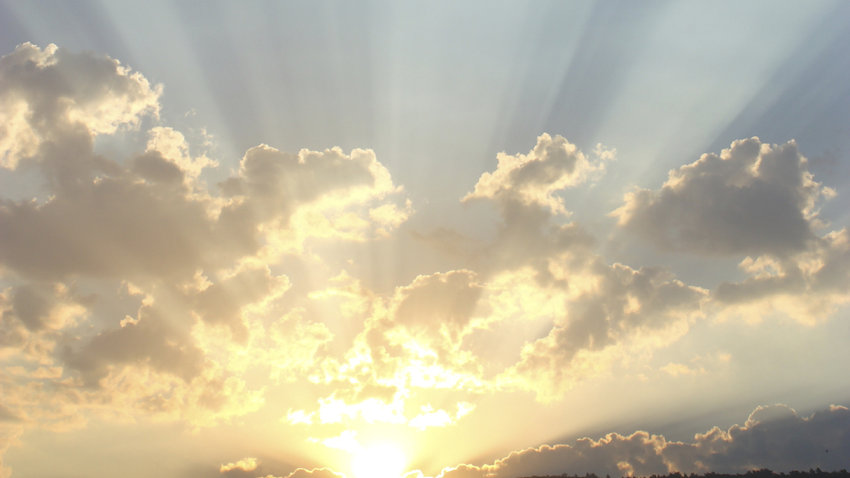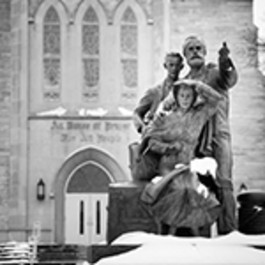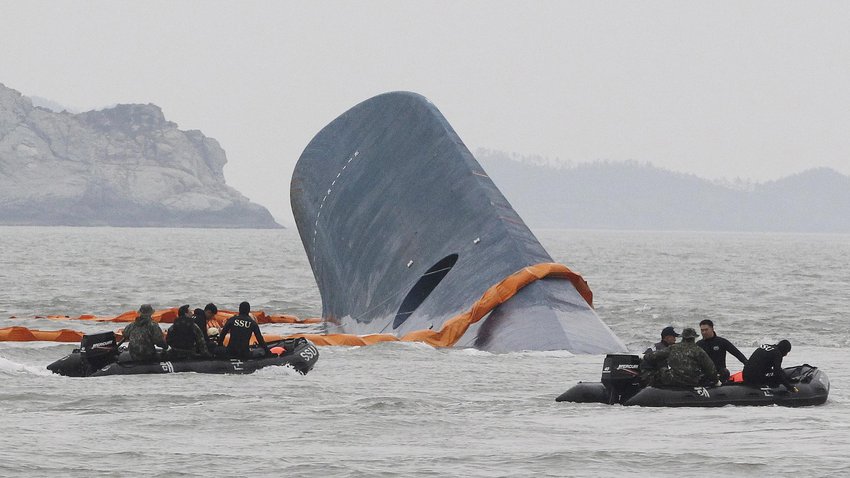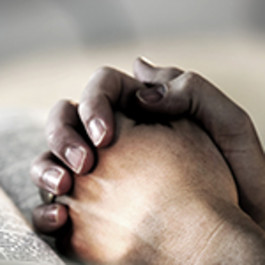Two killer headlines on either side of the Atlantic! The anthrax scare occurred a few days ago when 75 Atlanta employees at the U.S. Center for Disease Control and Prevention were accidentally exposed to the deadly anthrax bacteria. Apparently workers at another CDC lab sent an anthrax sample to the Atlanta lab but inadvertently failed to “inactivate” the killer bacteria, which the Atlanta researchers handled without proper safety gear. Fortunately none of the exposed workers has shown symptoms of anthrax. CDC authorities are reviewing their safety protocol. Unfortunately, across the Atlantic the exposure has been deadly. The mutant Ebola virus (fatal in up to 90 percent of cases) has spread across the nations of West Africa since January. “Ebola can fell its victims within days, causing severe fever and muscle pain, weakness, vomiting and diarrhea—in some cases shutting down organs and causing unstoppable bleeding.” At least 337 people have died so far this year. According to Dr. Bart Janssens, director of the medical charity Doctors Without Borders (MSF), “‘The epidemic is now out of control. With the appearance of new sites in Guinea, Sierra Leone and Liberia, there is a real risk of it spreading to other areas.’” A statement from MSF warns, “‘The scale of the current Ebola epidemic is unprecedented in terms of geographical distribution, people infected and deaths.’” (http://news.yahoo.com/ebola-control-west-africa-163439458.html) As tragic and as fatal as the outbreak of anthrax and Ebola can be, the human race faces an even more deadly mutation. At least for exposure to anthrax and the Ebola virus, there are emergency protocols to “inactivate” these microscopic killers. But there is no human remedy for the deadly virus of sin. Our human condition is fatal: “The whole head is sick, the whole heart is diseased, from the sole of the foot to the head there is nothing healthy: only wounds, bruises and open sores not dressed, not bandaged, not soothed with ointment” (Isaiah 1:5-6 NJB). A revolting depiction of our moral condition, to be sure! And yet just a few lines later this stunning therapeutic offer from our Creator: “‘Come, let us talk this over. Though your sins are like scarlet, they shall be white as snow; though they are red as crimson, they shall be like wool’” (vs 18). Red as crimson, red as blood—the color of the life transfusion Calvary offers every dying sinner like you, like me. Without His sacrificial death, we are utterly hopeless. Without His saving love we are dead. Though the symbols of His body and blood that we ingest today are uncontaminated, remember—they are a stark reminder of the deadly infectious disease, our fatal sin disease, that cost Christ His life. Forever. “By His wounds we are healed” (Isaiah 53:5). Forever and ever. Amen.
Pastors' Blog
By Pioneer Pastors

I don’t know about you, but I find the internecine fighting between the children of Islam in Iraq so terribly sad. Sunnis against Shiites, Shiites against Sunnis have been the headlines these past seven days. But it’s not like Muslims have a corner on the market of intra-family killing. This aging, disintegrating planet has lived with that tragedy from “in the beginning” with Cain and Abel. And while it might assuage our consciences to point the finger at Islam, the sorrowful truth is that the American Civil War and the terrorist killings between Catholics and Protestants in Ireland are evidence enough that Christianity (or a perversion thereof) can be justly fingered as well. Of course, the crooked finger rightfully deserves to be pointed straight at someone else, someone whose hatred of the Creator King is still (after all these millennia) so intense, so insane that he derives a sadistic (satanic would be the better word) pleasure in injecting the children of the heavenly Father with his own poisonous rage. “And war broke out in Heaven . . . . but woe to the earth and the sea, because the devil has gone down to you ‘wild and raging with anger’” (Revelation 12:7, 12—see The Message). Jesus’ own finger-pointing truthfully declared, “An enemy has done this” (Matthew 13:28). So what’s a Father to do? Here are some not-so-simple suggestions about what you and I might do: 1) Let’s you and I resolve that by the grace of our Lord Jesus Christ, we will not let intra-family anger, hatred or even resentment spring up in our own homes, our own hearts. “Do not let the sun go down while you are still angry” (Ephesians 5:26) is inspired counsel for marriages, families, friendships and workplace relationships. Before the day ends, talk it out, email it out, pray it out together. 2) Let’s you and I invest some extra time on our knees, pleading with God to intervene (even while He allows and protects free choice) in the rage and killing, that the innocent might be spared and that the guilty might yet be reached. “Love your enemies and pray for those who persecute you, that you may be the children of your Father in heaven” (Matthew 5:44, 45). While Jesus’ counsel was for us, why can’t we exercise this loving and praying on behalf of others far away? 3) Let’s you and I offer ourselves to God to become peacemakers in the circles where we live, work, play. “Blessed are the peacemakers, for they will be called the children of God” (Matthew 5:9). We may not be able to heal the whole world, but why couldn’t God’s healing peace flow through the way we speak to each other, the way we choose not to forward that angry, judgmental piece of gossip, the way we become involved in quiet shuttle-diplomacy between two estranged brothers or sisters who need the Peacemaker Himself? When children fight, what’s a Father to do? Could it be that you are what He’s wanting to do to stop it?

“Hopium” is a word someone coined to describe the opium-like addiction we humans have to hear what we want to hear, discarding evidence that challenges our hopes. Financial analyst Tim Aka, in his new book End Game Economics (which I examined in my previous blog), puts it this way: “We are addicted to this ‘hopium’ as some have called it. The truth [about an impending economic collapse despite surface appearances to the contrary] is unpalatable and the transformations needed are far too painful for most to consider. And so for now, ignorance is bliss, until a massive reality check [is] imposed on the hopium junkies” (39). Are we, too, addicted to “hopium,” hoping against hope that we’ll turn the corner somehow and “happy days” will be here again? At what point does such hopeful optimism become destructive naivety? The blockbuster movie “Noah,” though a far cry from biblical, historical and spiritual reality, has at least branded our secular culture’s psyche with the notion that civilization as we know it can cataclysmically end. Prophets of doom abound in the blogosphere, and warning voices could be suddenly proven right. My point is that perhaps God’s people—those who seek to live by radical faith and trust in their Creator—ought to take seriously the mounting warnings from economists who have chosen not to play to the press. Maybe it’s time to heed the warning of our Lord: “‘As it was in the days of Noah, so it will be at the coming of the Son of Man’” (Matthew 24:37). “Up to the day Noah entered the ark,” Jesus cautioned, people were eating and drinking, partying and building. If there had been a stock market, it perhaps like ours would be going through the roof right about now. Just before the collapse. Just before “sudden destruction comes on them . . . and they shall not escape” (1 Thessalonians 5:3). So it seems fair to ask: Should the friends of Jesus be plunging into significant financial debt today? Shouldn’t we who have lived from day to day, from debt to debt, begin to undertake serious efforts to be relieved of that indebtedness? Is the time rapidly approaching when those with discretionary income and more than adequate savings consider investing more substantially and sacrificially in the mission of Christ? While money is still of value? No one, of course, can tell you or me what to do with the little we have. But surely there will come a time when our hearts will tell us the truth, while there is still time. A century ago came this encouragement: “God Himself originates the plans for the advancement of His work, and He has provided His people with a surplus of means, that when He calls for help, they may cheerfully respond. If they will be faithful in bringing to His treasury the means lent them, His work will make rapid advancement. Many souls will be won to the truth, and the day of Christ’s coming will be hastened”(The Review and Herald, July 14, 1904). No “hopium” there—just the blessed hope of that glorious day—and who doesn’t want that day to be hastened?

May I recommend a new book to you? Three or four weeks ago I was visiting with one of our guests after the worship service. He and his family from Toronto were on campus with their prospective student. He is a Chartered Financial Analyst (CFA) and financial advisor for the past twenty years. He told me about a book he has written and offered to send me a copy. When it arrived a week ago, I sat down and began reading. I was so intrigued I finished Tim Aka’s 2014 book, End Game Economics: Understanding the Financial Crisis through Scripture, a few days later (a Kindle version is available at amazon.com). His rather dramatic premise is that you can trace the fault lines of a predicted global economic collapse in the ancient prophecies of Scripture. That in itself may not be such a novel suggestion. What I found stunning was his collection of accumulating evidences in the economies of the world’s leading economic powers (U.S., China, Japan, the European Union) to support his conclusion that the “proverbial ‘perfect storm’ is nearing and we can track its progress by watching the developments in energy, food and water, debt, stock markets, and cost inflation. These forces are relentlessly driving towards an event horizon of economic chaos” (117). Consider, he writes, the divine warning in Habakkuk 2:6—“Will not all these take up a proverb against him [Babylon], and a taunting riddle against him, and say, ‘Woe to him who increases what is not his [debt]—how long? And to him who loads himself with many pledges [of indebtedness]?’” Everyone knows that the amassing of national and personal debt is now the most debilitating practice of both government and populace. Which is Aka’s point. We are addicted to debt and it is killing us. “The only solutions that governments around the world can offer are more debt and more money printing to pretend that all is well. . . . There is an illusion of wealth and well being, as the stock markets are ramped up every day, but there is less real economic value being created” (31). Prayerfully consider the mounting economic evidence for yourself. In 2000 the dot.com bubble of technology collapsed, and the economy plunged. In 2007 the real estate bubble collapsed, and the economy nearly melted down. And now the Federal Reserve’s quantitative easing (money printing) debt bubble is on the edge of collapse. Where will this one leave us? Aka compares our predicament to a low-flying airliner, running out of fuel, but with no place to land. Inexplicably the pilot shoves the throttle forward into a steep climb, consuming precious fuel, but giving the impression that all is well, when in fact on that climb the fuel will run out. Only those with golden parachutes (the 1% of earth) will profit from that desperate climb, bailing out, leaving the hapless passengers (you and me) strapped in that crashing airliner. How then should we live, you and I? If ever Habakkuk 2:6’s indebtedness ought to be shunned, it is certainly now. In the mini-series, “How to Quantify Your Happiness,” over the next few weeks let’s share ancient wisdom that can spare us (as much as is possible here on the brink) unnecessary personal financial and spiritual collapse. God is the greatest Provider of all: “And my God will meet all your needs according to the riches of his glory in Christ Jesus” (Philippians 4:19). “The perfect storm” is ahead. But the good news is that in spite of the bad news, God promises to carry us through to the greatest news of all—the long-hoped-for return of Christ. But before the promised return comes “the perfect storm.” The point? It’s time to prepare.

In front of this church where graduation exercises transpire stands a bronze statue of the university namesake, John Nevins Andrews. The skilled work of sculptor Allan Collins, this replica of the Seventh-day Adventist church’s first scholar and missionary is shaped with extended arm and hand pointing outward to a world beyond the church. For years now pinned to the wall of my study is this quotation from J. N. Andrews: “I know of but one way: find a field of labor, ask God to help, take off your coat, and pitch into the work.” What is compelling about his personal mission statement is its tacit recognition that most of life (if not all of it) is simply a series of personal choices that reflect opinions and aspirations that are uniquely yours. What someone else considers a fantastic opportunity for career fulfillment or professional advancement might to you seem pedestrian and unappealing. Conversely, an opportunity others might declare unimaginative or so-dead-end might in fact be the high voltage that ignites your imagination and compels you to go. But where does God want me to go? Note carefully the sequence in Andrews’ lifework mantra: first, you find a place on earth where a great need matches your life quest; then ask the God who has already gifted you to help you serve Him there (in that village, that city, that wherever). But is that modus operandi the way God really operates? It’s precisely what He promised a new leader on graduation day long ago: “‘Have I not commanded you? Be strong and of good courage; do not be afraid, nor be dismayed, for the LORD your God is with you wherever you go’” (Joshua 1:9 emphasis supplied). When God promises “wherever you go,” He means—“you choose, I bless . . . you go, I accompany.” Stunning, isn’t it? Andrews was right. I.e., you pick the opportunity, you choose the field—and then asking God to help you, you pitch in to alleviate the human need in front of you. The graduate who spends her days calculating her move and choreographing her future will be of little help in a world so desperately in need right now. So as you march out of this church for the last time, do yourself and God a favor. Glance one more time at the statue. It still speaks. And its hand is still pointing you to the way.

The still unfolding heartache of the capsized Korean ferry Sewol with its entombed teenage passengers has gripped the world. Reports of text messages and phone calls from some of the high school students trapped inside the overturned and slowly sinking vessel (though many of the messages are now considered hoaxes) were fresh wounds in a nation mourning the numbing deaths of so many of its promising young. The anguished wail of one of the parents should haunt us all. CNN reported: “Boat after boat, body after body from a capsized South Korean ferry came ashore Sunday morning, a solemn process interrupted by piercing cries and screams from passengers’ kin. . . . After an inspection, [the bodies] were carried along a path guarded by police—who themselves shed tears—and past even more outwardly emotional family members. These relatives cried and, in some cases, yelled loudly, clearly overtaken by the moment. Some of those shouts came from inside the identification tent. One man yelled out, ‘Wake up! Wake up, please!’” (http://www.cnn.com/2014/04/19/world/asia/south-korea-ship-sinking/index.html?iref=allsearch) The image of that father weeping over the recovered body of his child, “Wake up! Wake up, please!”—how could we ever forget it? And yet it is—perhaps not for us, but for the Father of this world—an even more stunning and urgent reality that an entire civilization today is entombed in a morally, spiritually capsized planet that will eventually slip beneath the cold waters of death. Unless they are rescued, tens of thousands of millions, even billions, will perish. Are you among the already rescued, among those men, women and children who have the blessed fortune of having been snatched from impending spiritual death? Shall we sit on the shoreline of this sinking planet, thanking our Savior for our own salvation, bemoaning those still entrapped, but doing nothing for their rescue? How could we sleep at night were we to actually hear the anguished cries from a planet that loses two of its inhabitants to death every single second? “Wake up! Wake up, please!” The bloody tree atop Calvary is a measure of the Love that loudly rejoices over every rescued soul, but mournfully weeps over every life unresponsive, reached too late. “Wake up! Wake up, please!” While this school year now ends, the unfolding tragedy of this sinking, perishing planet does not. “Rescue the perishing; don’t hesitate to step in and help. If you say, ‘Hey, that’s none of my business,’ will that get you off the hook? Someone is watching you closely, you know—Someone not impressed with weak excuses” (Proverbs 24:11, 12 The Message). Wherever this summer journey takes us, I pray it will somehow immerse you and me in Christ’s rescue mission. Because the good news is that “Wake up! Wake up, please!” can come true, and the entrapped can wake up and be rescued while there still is time. (If you would like to be part of our “rescue mission” to south Mexico July 17—August 4, call the church office [269.471.3134] for details on how to join the team.)

On April 1 an 8.2 magnitude earthquake erupted in the shallow ocean floor off the coast of northern Chile. It’s was no April Fools prank. The energy force the quake released was the equivalent of over 30 megatons—thirty million tons—of TNT. For comparison, a 1 megaton bomb is capable of destroying 80 square miles. Imagine thirty times that destructive force and reach! The story of Easter, as told by Matthew in the original Greek, describes a massive temblor that predawn morning: “There was a violent earthquake, for an angel of the Lord came down from heaven and, going to the tomb, rolled back the stone and sat on it” (Matthew 28:2). The words Matthew chose are megas seismos—from whence comes our English transliteration to describe a “mega seismic” event. Interestingly, those same two Greek words describe the “mega seismic” event that marks the end of earth’s history as we know it, immediately preceding the fiery, glorious return of Christ (see Revelation 16:18). An earthquake when He died, an earthquake when He arose, and an earthquake when He returns—you get the impression that Christ is the Lord of unbridled power, do you not? Power not measured in megatons of weaponry, but given the cosmic war He leads to rescue this rebel planet from its dark and fallen warlord, power measured in the liberated and set-free lives of human beings who cry to Him for rescue. This Wednesday evening the sanctuary of our campus church was occupied by men, women, young adults and teenagers who gathered together for a special prayer and anointing service. For the past three Sabbaths we have confronted the enemy’s diabolical challenge to the lordship of Christ through demonic addictions. Nobody ever plans to become addicted. The devil’s strategy behind every addiction is to lure us through the tempting bait of pleasure, gratification, appetite, social conformity—we all know (all too well) the can of bait the enemy turns to in order to hook us. But the profoundly good news that pervaded this sanctuary last Wednesday is the glad tidings that permeate this Easter: “If the Son sets you free, you are free indeed!” (John 8:36). Couple that promise with this one: “Christ’s death and resurrection have opened before every soul an unlimited source of power from which to draw” (RH 11-5-1901). Unbridled, undiluted, unlimited megas seimos power from the risen Christ straight to you. Ask for it, ask for Him. And the earth will quake over your deliverance!

It has been a month since the ill-fated Malaysia Airlines Flight 370 disappeared off the radar screens of air traffic control. With its 239 passengers and crew missing and presumed dead, its disappearance has become the greatest unsolved mystery in the history of flight. For the last two weeks air and naval vessels from a cadre of nations have been combing the south Indian Ocean off the western coast of Australia for any sign, any clue at all regarding the missing airliner. Satellite images of out of focus flotsam on the sea have sent search teams scrambling to confirm potential evidence. But thus far no confirmation. No physical evidence that could bring a modicum of comfort or even closure to the families of the missing. Nothing except an erratic and occasional “ping,” which, authorities say, could possibly be the underwater pulse emitted by an airliner’s black box communication recording devise. But like the satellite images, the recent spate of pings has yet to prove conclusive. And so the world waits and the families pray. As I have brooded over this unfolding story and—as is characteristic of this blog site—looked for a “connect” between the headlines and life as we live it today, it has occurred to me that in some mysterious sense the underwater pings are a metaphor of the resurrection. And by that I don’t mean that this airliner full of men, women and children, buried in the depths of the ocean, is a symbol of all the dead who await the resurrection the Bible promises at the end of time. With Easter only a few days away, that promise of hope would certainly be worthy of our reflection. But rather, could it be those intermittent pings can represent an even more stunning truth? The quiet truth that the Father of the universe, the Creator of this errant planet, itself wildly and erratically far far off its intended divine flight plan—could it be that God Himself hears what no other ear can hear—the faint, intermittent pings emitting from a billion fresh and ancient graves the world over—silent pings that mark the patches of earth and sea under which lie the remains of earth children who sought His salvation? To our broken hearts what seems so cruelly stolen from us in death is not lost to Him. Because what “eye hath not seen, nor ear heard” is seen and heard by the Christ who yet cries out, “I am the Resurrection and the Life” (John 11:25). In vain we search for the one who no longer is in our arms, whose breath we feel upon our cheeks no more—lost and gone, our sobs confess. But on this week before Easter, let every heart remember that what the ear cannot hear He can. Wild and stunning truth more glorious than before, God can hear the “ping of hope.” And our dead are not lost to Him. “Even so, come, Lord Jesus. Amen.”

 Poor Mary Barra, the new CEO of General Motors. On Capitol Hill for a grilling by a House subcommittee this week, what could she say? Since February GM has recalled 2.6 million cars because of a faulty ignition switch. As it turns out thirteen deaths are now attributed to the defective switch, “which can cause the engine to cut off in traffic, disabling the power steering, power brakes and air bags and making it difficult to control the vehicle” (South Bend Tribune 4-2-14). Thirteen deaths, 2.6 million automobiles recalled—all because of a small switch. Engineers, according to company records, knew about the defective switch back in 2005 but management concluded that the costs for replacing the switch were not “an acceptable business case” (i.e., it cost too much money). The cost of a replacement switch? 57 cents (plus labor). Thirteen deaths and a 2.6 million vehicle recall later is there anybody that still thinks 57 cents was too much? I’m amazed at the notion that in the battle over addiction (the theme of our pulpit series this month), the strategy of prayer is so easily dismissed as a two-bit panacea that really can’t handle the big guns of addiction. And yet leave that 57-cent piece out of the equation, and look at the personal mayhem and heartache that have accumulated as a result. Nobody is suggesting that the simple (but profoundly powerful) act of prayer is all anybody needs to break the back of a life-enslaving addiction (be it drugs, alcohol, sex, nicotine, food, gaming, et al). Mental health professionals recommend an arsenal of strategies and therapies for those who seek to break their addictions—from Twelve Step group therapy to counseling to volunteer community service to medical treatment and more. But it is no coincidence that in the battle against addiction there is amazing unanimity regarding the power of personal prayer or, as the Wall Street Journal put it a few days ago, the power of “frequent involvement in spiritual activities” (3-28-14 A11). So simple, so inexpensive, yet so often dismissed. “Submit yourselves, then, to God. Resist the devil, and he will flee from you. Come near to God and He will come near to you” (James 4:7-8). So simple, so inexpensive, but so potentially life-altering, life-saving. So in your own private battle with addiction, go ahead, take advantage of the large arsenal available today for healing. But whatever you do, do not omit prayer. To make prayer possible it cost God the most expensive enterprise in the universe. And yet for less than 57 cents, you can turn the key in prayer’s ignition every single day, and put your faith in touch with the only One with power enough to set you free. Forever.
Poor Mary Barra, the new CEO of General Motors. On Capitol Hill for a grilling by a House subcommittee this week, what could she say? Since February GM has recalled 2.6 million cars because of a faulty ignition switch. As it turns out thirteen deaths are now attributed to the defective switch, “which can cause the engine to cut off in traffic, disabling the power steering, power brakes and air bags and making it difficult to control the vehicle” (South Bend Tribune 4-2-14). Thirteen deaths, 2.6 million automobiles recalled—all because of a small switch. Engineers, according to company records, knew about the defective switch back in 2005 but management concluded that the costs for replacing the switch were not “an acceptable business case” (i.e., it cost too much money). The cost of a replacement switch? 57 cents (plus labor). Thirteen deaths and a 2.6 million vehicle recall later is there anybody that still thinks 57 cents was too much? I’m amazed at the notion that in the battle over addiction (the theme of our pulpit series this month), the strategy of prayer is so easily dismissed as a two-bit panacea that really can’t handle the big guns of addiction. And yet leave that 57-cent piece out of the equation, and look at the personal mayhem and heartache that have accumulated as a result. Nobody is suggesting that the simple (but profoundly powerful) act of prayer is all anybody needs to break the back of a life-enslaving addiction (be it drugs, alcohol, sex, nicotine, food, gaming, et al). Mental health professionals recommend an arsenal of strategies and therapies for those who seek to break their addictions—from Twelve Step group therapy to counseling to volunteer community service to medical treatment and more. But it is no coincidence that in the battle against addiction there is amazing unanimity regarding the power of personal prayer or, as the Wall Street Journal put it a few days ago, the power of “frequent involvement in spiritual activities” (3-28-14 A11). So simple, so inexpensive, yet so often dismissed. “Submit yourselves, then, to God. Resist the devil, and he will flee from you. Come near to God and He will come near to you” (James 4:7-8). So simple, so inexpensive, but so potentially life-altering, life-saving. So in your own private battle with addiction, go ahead, take advantage of the large arsenal available today for healing. But whatever you do, do not omit prayer. To make prayer possible it cost God the most expensive enterprise in the universe. And yet for less than 57 cents, you can turn the key in prayer’s ignition every single day, and put your faith in touch with the only One with power enough to set you free. Forever.

 Look—I know how uncomfortable it can be, talking about our own weaknesses. But sometimes, in the life of a family or in this case an institutional family, we need to have that collective conversation. And so when the university contacted us about joining with them in a springtime focus on substance abuse, it made sense for the campus church to do just that. After all the Student Movement, our campus newspaper, has just run three major articles dealing with substance abuse. And speaking of being uncomfortable talking about our own weaknesses, I applaud Kimberly Schwirzer for being vulnerable and sharing with editor Melodie Roschman the testimony of her own battle with addiction. “‘Just because it’s an Adventist school, doesn’t mean we can pretend that people don’t drink, don’t experiment with drugs, don’t get into trouble,’” Kimberly told the Student Movement. “‘I went to Andrews to get away from party culture,’ she explains, but what she got was ‘loss of control, and addiction’” (Student Movement 2-26-14 p 3). And she isn’t alone. Not at Andrews University. Not at Andrews Academy. Not at any high school or university in this nation, Seventh-day Adventist or otherwise. There are some who wish we could simply pretend that the grab-bag of addictions prolific in our secular culture (alcohol, drugs, sex, food, et al) doesn’t exist in our faith community—but whom are we fooling, except ourselves? To deny we have a problem only exacerbates the problem and delays any solution. Which isn’t to suggest that a springtime series of sermons—“The Bondage Breaker: How to Win (and Help Your Friends Win) the Battle of Addiction”—is the elixir to heal our addictions. The truth is, only Jesus can free the captive: “‘The Spirit of the Lord is upon me, because He has anointed me . . . to let the oppressed go free’” (Luke 4:18 NRSV). Which means: “‘If the Son sets you free, you will be free indeed’” (John 8:36 NIV). But is Jesus too simplistic a solution to our addictions? I don’t think so. Not if the dark world of addictive behavior is the manifestation of an even darker and more desperate war, fought not only within us, but raging invisibly around us. “For our struggle is not against flesh and blood, but against the rulers, against the authorities, against the powers of this dark world and against the spiritual forces of evil in the heavenly realms” (Ephesians 6:12 NIV). Plain and simple, we need the Bondage Breaker. And in tandem with Him some practical, repeatable actions we can take to personally experience His promised deliverance from our addiction. So take the journey with me—do it for your friends, do it for yourself. And be assured that Pioneer will be a safe, welcoming place for you, no matter your addiction or struggle. Because we’re all in this together. With the One who has already won.
Look—I know how uncomfortable it can be, talking about our own weaknesses. But sometimes, in the life of a family or in this case an institutional family, we need to have that collective conversation. And so when the university contacted us about joining with them in a springtime focus on substance abuse, it made sense for the campus church to do just that. After all the Student Movement, our campus newspaper, has just run three major articles dealing with substance abuse. And speaking of being uncomfortable talking about our own weaknesses, I applaud Kimberly Schwirzer for being vulnerable and sharing with editor Melodie Roschman the testimony of her own battle with addiction. “‘Just because it’s an Adventist school, doesn’t mean we can pretend that people don’t drink, don’t experiment with drugs, don’t get into trouble,’” Kimberly told the Student Movement. “‘I went to Andrews to get away from party culture,’ she explains, but what she got was ‘loss of control, and addiction’” (Student Movement 2-26-14 p 3). And she isn’t alone. Not at Andrews University. Not at Andrews Academy. Not at any high school or university in this nation, Seventh-day Adventist or otherwise. There are some who wish we could simply pretend that the grab-bag of addictions prolific in our secular culture (alcohol, drugs, sex, food, et al) doesn’t exist in our faith community—but whom are we fooling, except ourselves? To deny we have a problem only exacerbates the problem and delays any solution. Which isn’t to suggest that a springtime series of sermons—“The Bondage Breaker: How to Win (and Help Your Friends Win) the Battle of Addiction”—is the elixir to heal our addictions. The truth is, only Jesus can free the captive: “‘The Spirit of the Lord is upon me, because He has anointed me . . . to let the oppressed go free’” (Luke 4:18 NRSV). Which means: “‘If the Son sets you free, you will be free indeed’” (John 8:36 NIV). But is Jesus too simplistic a solution to our addictions? I don’t think so. Not if the dark world of addictive behavior is the manifestation of an even darker and more desperate war, fought not only within us, but raging invisibly around us. “For our struggle is not against flesh and blood, but against the rulers, against the authorities, against the powers of this dark world and against the spiritual forces of evil in the heavenly realms” (Ephesians 6:12 NIV). Plain and simple, we need the Bondage Breaker. And in tandem with Him some practical, repeatable actions we can take to personally experience His promised deliverance from our addiction. So take the journey with me—do it for your friends, do it for yourself. And be assured that Pioneer will be a safe, welcoming place for you, no matter your addiction or struggle. Because we’re all in this together. With the One who has already won.
- ‹ previous
- 35 of 64
- next ›
